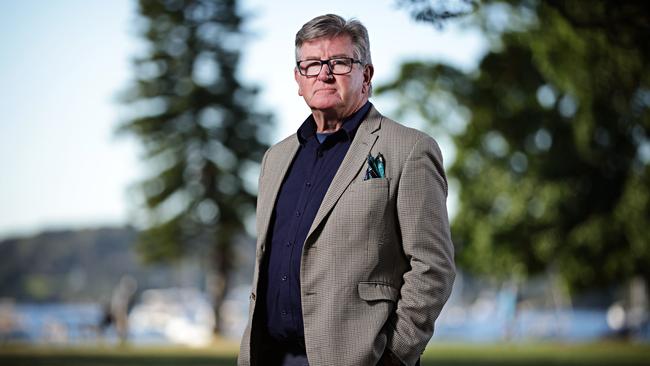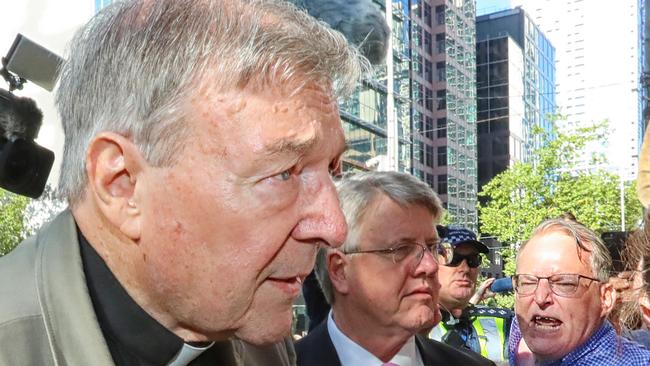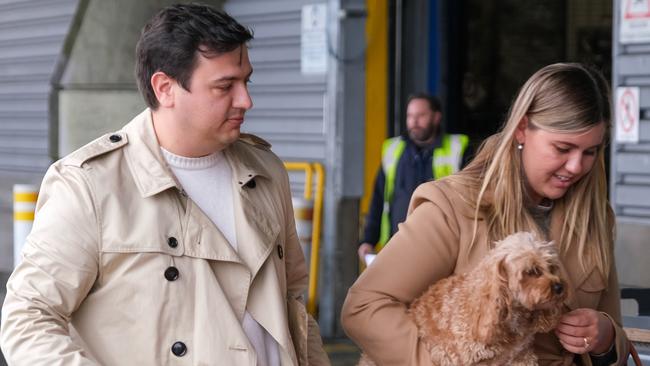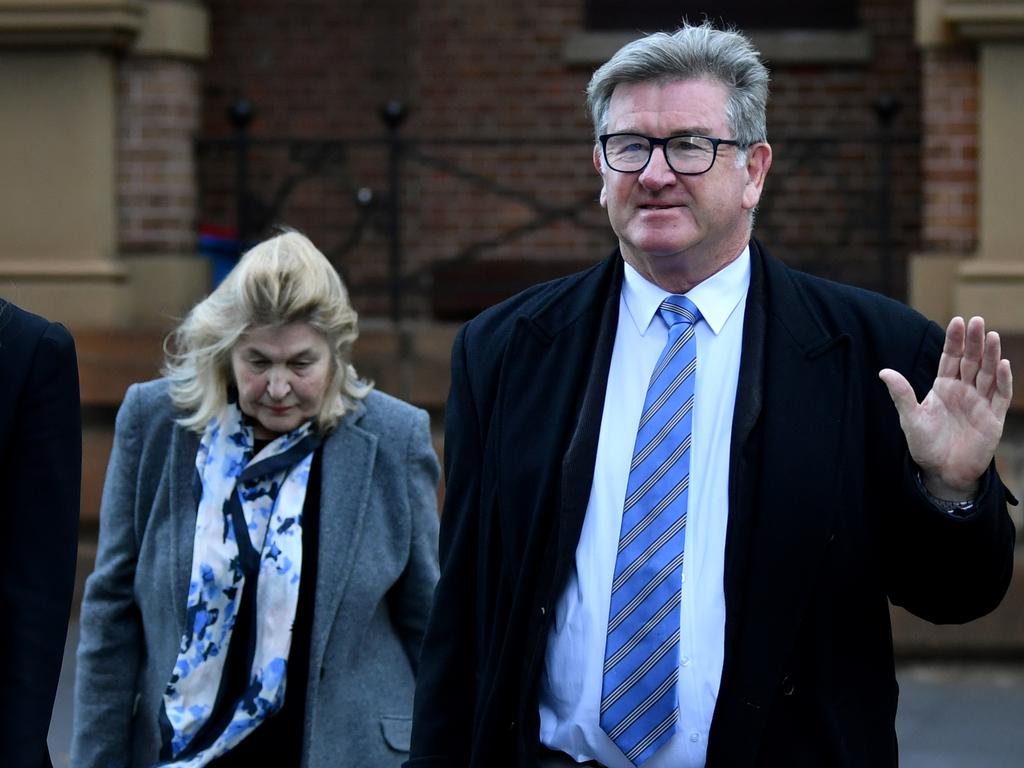Legendary newsman Steve Barrett’s battle for justice after AFP witch-hunt shows importance of free media


Ironically, much recent institutional politicisation has been driven by conservative governments that have demanded a less political ABC.
Former prime minister Scott Morrison in February 2022 apologised in the parliament to former Liberal Party staffer Brittany Higgins for an alleged rape that had not even been tested in the courts.
Morrison did not defend his then attorney-general, Christian Porter, from tenuous historical rape allegations put by the ABC in 2021 on behalf of friends of a dead woman they claim Porter raped when both were high school students. Porter denied the story outright.
Nor did Morrison defend his then education minister, Alan Tudge, from November 2020 revelations on the ABC about a 2017 consensual affair with staffer Rachelle Miller.
Yet the Coalition oversaw the payment of $650,000 to Miller while the new Labor government paid $2.4m to Higgins without even obtaining independent legal advice about the commonwealth’s prospects in court. The minister in whose department Higgins worked, Linda Reynolds, and her chief of staff, Fiona Brown, were barred from attending the one-day legal negotiation in December 2022.
The involvement of then Labor frontbenchers Penny Wong and Katy Gallagher, a personal friend of Higgins’ fiance, David Sharaz, in pursuing the politics of the Higgins allegations is well-known, as was the role of ousted former Coalition PM Malcolm Turnbull – succeeded by Morrison – in driving ABC reporting of the Porter and Tudge allegations.
Newly named ABC chair Kim Williams will have his work cut out trying to police the impartiality he rightly claimed last week should be essential to the corporation’s journalism.
Reflect on the role of the ABC in the failed witch-hunt against the late Cardinal George Pell over child abuse allegations against two teenagers unknown to him inside Melbourne’s St Patrick’s Cathedral in his early days as archbishop of Melbourne.
The credibility of the ABC, Victoria Police and the state judiciary was damaged by the pursuit of Pell but at least the High Court of Australia, in a 7-0 decision, ultimately overturned the conviction. That April 2020 decision, a slap to the ABC, was rejected by several senior ABC staff who claimed on social media the result did not mean Pell was innocent.
In the Higgins matter, the political framing of the MeToo movement to hurt the Morrison government damaged the ABC’s journalism, and Network Ten’s. The case raised doubts about the Australian Federal Police, the ACT legal system and the ACT DPP. Some journalists even publicly questioned the legal principle of the presumption of innocence – the bedrock of the justice system.
The Coalition federal government directly threatened journalists in June 2019 AFP raids on then News Corp journalist Annika Smethurst’s home, and two ABC reporters. Now disgraced former Home Affairs director Mike Pezzullo pursued reporters over stories partly based on a leaked document in which he proposed allowing the Australian Signals Directorate to access the private information of Australians.

Thanks to a Freedom of Information request by former independent South Australian senator Rex Patrick we now know Pezzullo even wrote to AFP deputy Neil Gaughan on June 4, 2019 congratulating the AFP: “Good work by all involved.”
The AFP will be in the frame again this week when veteran NSW television and newspaper crime reporter Steve Barrett – “Bar Rat” to his friends – takes a costs action to the NSW Supreme Court in Sydney over a failed prosecution alleging involvement in a $5m bribe attempt.
The matter concerned another institutional failure: Adam Cranston, son of then federal deputy commissioner of taxation Michael Cranston, was convicted and jailed over the $105m Plutus Payroll tax fraud. Cranston and four others were found guilty in March last year in the NSW Supreme Court over charges relating to causing loss to the commonwealth and dealing with the proceeds of crime between March 2014 and May 2017.
Barrett, 66, a prolific story breaker for 40 years, was unintentionally caught up in a scam. Blackmailers were threatening to reveal details of the tax fraud through the media unless the fraudsters paid them $5m. Barrett knew nothing of the blackmail attempt. He was simply trying to firm up the story for publication and the AFP knew he had already briefed A Current Affair.
Barrett was told about the tax scam by property developer and conman Daniel Hausman. Barrett, an independent media contractor, received one payment of $2000 from Hausman for work done as a journalist trying to substantiate the story.
The Australian’s Stephen Rice reported here last July 14 that internal AFP emails showed senior officers working on the Barrett matter “recommended the AFP reject a request by prosecutors to obtain a statement from their star witness (Hausman) because he was not considered a witness of truth”. The commonwealth DPP had dropped all charges against Barrett that day.
In an email on August 28, 2020, eight months before Barrett’s first trial: “AFP Detective Sergeant Morgan Blunden said his team had already discontinued taking a statement from Mr Hausman because he was ‘untruthful’, ‘unreliable’ and at times ‘incoherent’.”

Jurors at that first failed trial were never told of the AFP’s assessment of Hausman because the email was ruled inadmissable. That trial collapsed after the jury was hung, but Hausman was found in subsequent matters to have lied repeatedly. He is serving an eight-year sentence.
The near seven-year saga has left Barrett – who was initially told he was not to be charged after the AFP raided his Sydney home on May 17, 2017 – significantly out of pocket, and his reputation damaged. He was forced to sell his house and his name was revealed to the media before any formal charges were laid.
But Barrett on that 2017 morning was more concerned he had lost his scoop. As Rice reported last July 15, Barrett was suspicious a magistrate had signed the warrant for the search of his house at only 5.08pm the previous day, the very day Barrett obtained the documentary proof he believed would allow him to break one of the biggest stories of his life.
A year after his face was plastered all over national TV bulletins wrongly accusing him of being a director of a straw company associated with the fraud, Barrett in 2018 received a letter informing him he had not been identified as a conspirator. At some point over the next year police changed their minds and Barrett was charged with a single count of blackmail.
Barrett’s lawyer rang to ask the AFP why the change of mind and was told: “The commonwealth wants it.”
Hopefully Wednesday’s hearing will bring justice for the man who tracked down pedophile Dolly Dunn in Honduras for 60 Minutes in 1996. Bar Rat’s achievements read like a merit list of the most important crime stories of the past 40 years.
Politicians, even now working on dangerous misinformation and disinformation laws, should reflect on the importance of a free media. Bar Rat’s journalism was never driven by political activism but by a search for truth.







Partisan politics and activist campaigning are undermining Australia’s institutions, including government, the law, the judiciary, the police and sections of the media.